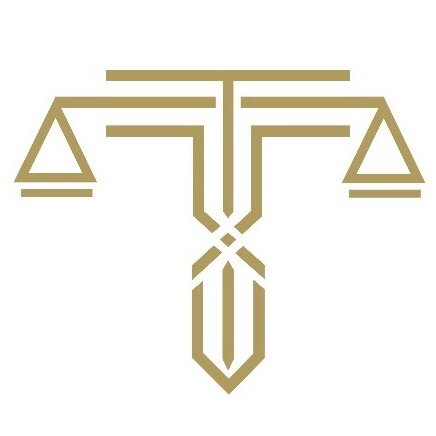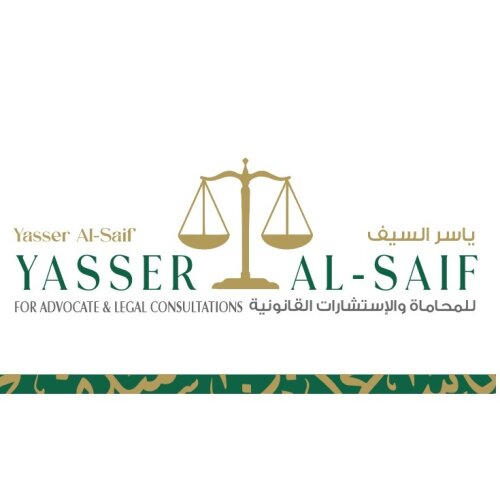Best Public-Private Partnerships (PPP) Lawyers in Dammam
Share your needs with us, get contacted by law firms.
Free. Takes 2 min.
List of the best lawyers in Dammam, Saudi Arabia
About Public-Private Partnerships (PPP) Law in Dammam, Saudi Arabia
Public-Private Partnerships, commonly known as PPP, are collaborative projects between government entities and private sector companies to deliver public services or infrastructure. In Dammam, Saudi Arabia, PPPs are increasingly favored for sectors like transport, water, energy, education, and healthcare, aiming to promote efficiency, innovation, and ease financial burdens on government resources. Saudi Arabia's Vision 2030 actively encourages PPPs to diversify the economy and introduce global best practices. Local authorities in Dammam often work within the national framework for PPPs, ensuring projects meet both local development needs and broader national objectives.
Why You May Need a Lawyer
Engaging in a Public-Private Partnership is complex and typically involves significant regulatory, contractual, and financial considerations. You may need a lawyer if you are:
- Negotiating a PPP agreement with a government agency in Dammam
- Responding to or preparing bids for PPP projects
- Reviewing or drafting contracts and tender documents
- Ensuring compliance with Saudi and local Dammam regulations
- Addressing disputes or renegotiations arising during a project’s lifecycle
- Navigating land acquisition, permits, or licensing requirements
- Understanding risk allocation, financing, and insurance matters within a PPP
- Seeking advice on project feasibility and due diligence procedures
- Dealing with changes in law, policy updates, or complex exit strategies
Local Laws Overview
The legal environment for PPPs in Dammam is shaped by both national and municipal regulations. The primary framework is derived from Saudi Arabia’s Private Sector Participation Law (PSPL) and its Implementing Regulations, which provide a structured approach to project selection, bidding, execution, and oversight. Local authorities in Dammam may apply additional requirements based on the city’s strategic planning needs.
Key aspects include:
- Fair and transparent bidding processes managed by the National Center for Privatization & PPP (NCP)
- Mandatory approvals for PPP project agreements by relevant ministries and local departments
- Strict compliance with public procurement rules, anti-corruption laws, and local content obligations
- Ownership and investment limitations for foreign companies, subject to updated foreign investment regulations
- Defined dispute resolution mechanisms, often including arbitration clauses
- Comprehensive risk assessment, allocation, and management provisions within contracts
- Environmental, social, and economic impact assessments as part of the project approval process
Frequently Asked Questions
What is a Public-Private Partnership (PPP)?
A PPP is a long-term cooperative arrangement where a private company partners with a government entity to finance, build, operate, or maintain public infrastructure or services.
What sectors in Dammam commonly use PPPs?
PPPs in Dammam are commonly utilized in transportation (such as roads, ports), water supply and treatment, education facilities, healthcare services, energy production, and waste management.
How are PPP projects awarded in Dammam?
Projects are typically awarded through a competitive bidding process governed by national and municipal regulations to ensure transparency and fair competition.
Can foreign companies participate in PPPs in Dammam?
Yes, foreign companies can participate, but they must comply with Saudi investment regulations and may require a local partner depending on the sector.
Are there specific rules for PPP contracts in Dammam?
PPP contracts must comply with the PSPL, its Implementing Regulations, and additional local requirements, covering aspects like scope, duration, risk allocation, and dispute resolution.
What are the main risks involved in a PPP project?
Risks include financial viability, construction issues, regulatory changes, force majeure events, and operation or maintenance challenges. Contracts should clearly address how these risks are managed.
Who regulates PPP projects in Dammam?
PPPs are primarily regulated by the National Center for Privatization & PPP (NCP) at the national level, alongside Dammam’s local authorities where applicable.
How are disputes resolved in PPP projects?
Disputes are typically resolved through negotiation, mediation, or arbitration, as stipulated in the PPP agreement. Some cases may ultimately go to local courts.
What legal permits are required for a PPP?
Requirements vary by project type but commonly include municipal permits, environmental approvals, sectoral licenses, and regulatory clearances.
Why is legal due diligence important in PPPs?
Legal due diligence helps identify and mitigate regulatory, contractual, and operational risks, ensuring the PPP structure is compliant and sustainable.
Additional Resources
For more information or support related to PPPs in Dammam, consider the following organizations:
- National Center for Privatization & PPP (NCP) - provides official guidelines and resources
- Dammam Municipality - oversees local regulations and permits affecting PPP projects within the city
- Ministry of Investment of Saudi Arabia (MISA) - assistance for foreign investors in PPPs
- Chamber of Commerce in Dammam - networking, advisory, and support services for private companies
- Sector-specific ministries (e.g. Ministry of Health, Ministry of Transport) - project and policy information for relevant PPP initiatives
- Local legal and consulting firms - guidance through every stage of the PPP process
Next Steps
If you are considering involvement in a Public-Private Partnership project in Dammam, Saudi Arabia, take the following steps:
- Carefully assess the business opportunity or government invitation for PPP participation
- Engage a qualified local lawyer or legal firm with experience in PPP laws and procedures
- Conduct a thorough legal and financial due diligence on all partners and project requirements
- Prepare all necessary documentation, bids, or proposals in accordance with local and national law
- Consult with relevant authorities in Dammam regarding permissions, zoning, and compliance matters
- Ensure your contractual agreements clearly address risk allocation, dispute resolution, and performance standards
- Maintain compliance throughout the project lifecycle and stay updated on regulatory changes
Lawzana helps you find the best lawyers and law firms in Dammam through a curated and pre-screened list of qualified legal professionals. Our platform offers rankings and detailed profiles of attorneys and law firms, allowing you to compare based on practice areas, including Public-Private Partnerships (PPP), experience, and client feedback.
Each profile includes a description of the firm's areas of practice, client reviews, team members and partners, year of establishment, spoken languages, office locations, contact information, social media presence, and any published articles or resources. Most firms on our platform speak English and are experienced in both local and international legal matters.
Get a quote from top-rated law firms in Dammam, Saudi Arabia — quickly, securely, and without unnecessary hassle.
Disclaimer:
The information provided on this page is for general informational purposes only and does not constitute legal advice. While we strive to ensure the accuracy and relevance of the content, legal information may change over time, and interpretations of the law can vary. You should always consult with a qualified legal professional for advice specific to your situation.
We disclaim all liability for actions taken or not taken based on the content of this page. If you believe any information is incorrect or outdated, please contact us, and we will review and update it where appropriate.















